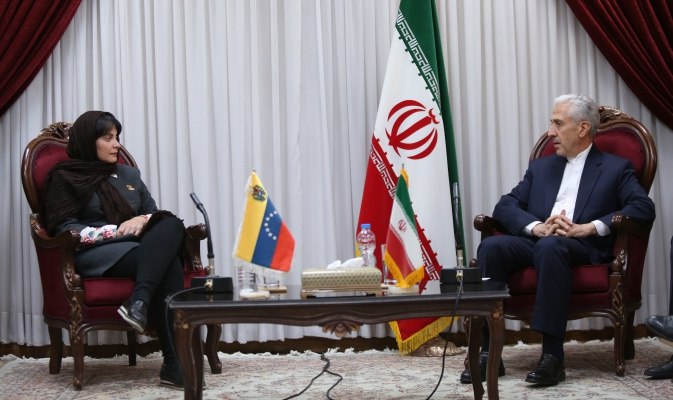Mansour Gholami made the comments in a meeting with his Venezuelan counterpart Gabriela Jiménez Ramírez in Tehran on Wednesday.
Referring to Iran’s readiness for scientific and international cooperation, he said Iran puts its scientific resources at the disposal of other countries without any expectation and now these collaborations are noticeable at different levels.
The minister of science said Iran currently stands at top positions in the world in terms of scientific output, and in some fields such as aerospace and biotechnology, the country is among the best ones.
“We have a very well-educated young population in the country with a good level of knowledge, so we are trying to provide the things we used to get from other countries.”
The minister of science also underscored the necessity for meetings between Iranian and Venezuelan professors and researchers as one of the important measures in scientific exchanges.
He further announced Tehran’s readiness to collaborate with Caracas in various scientific fields including technology, information technology (IT) and software.
He further said that Iranian PhD students are doing part of their dissertation research abroad.
“This makes students familiar with different universities and foreign professors and researchers in doctoral dissertations and establishes and maintains scientific links between them,” he added.
Referring to some problems in Venezuela, he said, “We understand the situation in Venezuela very well and we know that imperialist countries such as the US do not hesitate to take over the nations.”
Gholami went on to say that the Islamic Republic of Iran stands with all the freedom-seeking nations of the world, stressing that independence in decision-making is a God-given right to all human beings and no one can deny this right. Of course, the will of the nations is very important in this regard, and the people who dominate their destiny will certainly win, he underlined.
Talking about some of the problems caused by sanctions in Iran, the minister of science stated that the Islamic Republic of Iran has very valuable experience in dealing with sanctions.
“Fortunately, Iran was able to meet domestic needs without being dependent on the US and just by relying on its scientific and human resources.”
For her part, the Venezuelan minister said her country is currently facing a number of problems, including media and psychological wars and drug shortages, so it needs to develop science and expand scientific cooperation with leading countries in scientific fields such as Iran.
She emphasised cooperation with Iran in the field of nanotechnology adding that in 2009 the President of the Islamic Republic of Iran donated a nanomicroscope to Venezuela, but unfortunately the South American country has not been able to use it so far. She asked her counterpart to support and assist the country in running all electronic microscopes.
